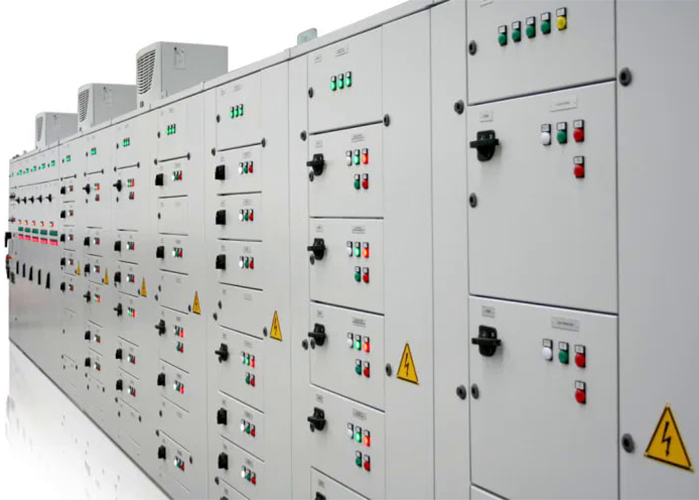GOVERNOR SYSTEM
- Home
- GOVERNOR SYSTEM
Our Products
Ask Question
Do You Need Any
Help?
- Call Us Now:
+91-7226017401
- Talk To Us:
sales@mariteksolutions.com

Governor System
The electrical system in a marine ship is a critical component that provides power for various systems and equipment on board. It plays a crucial role in ensuring the safety, navigation, and functionality of the vessel. Here are some key aspects of the electrical system in a marine ship:
Power Generation
Marine ships typically have one or more power generators that produce electrical energy. These generators are often powered by diesel engines, gas turbines, or, in some cases, steam turbines. The electricity generated is used to power the ship’s systems and equipment.
Distribution System
The electrical power generated is distributed throughout the ship using a network of cables and electrical panels. This distribution system ensures that power is delivered to various parts of the vessel, including the bridge, engine room, living quarters, and other compartments.
Electrical Loads
Marine ships have a wide range of electrical loads, including navigation equipment, communication systems, lighting, heating, ventilation, air conditioning (HVAC), pumps, motors, and more. These loads vary in size and power requirements.
Emergency Power
Ships are equipped with emergency power systems, such as emergency generators and batteries, to ensure essential equipment continues to operate in case of a main power failure. This is critical for maintaining safety and navigational functions.
Voltage Levels
Marine electrical systems often operate at different voltage levels, including 440V AC, 220V AC, and 24V DC, depending on the specific requirements of the equipment and systems on board.
Safety Measures
Due to the corrosive and potentially hazardous marine environment, electrical systems on ships are designed with safety in mind. This includes the use of specialized corrosion-resistant materials, insulation, and protective measures to prevent electrical faults and fires.
Automation and Control
Many modern ships employ advanced automation and control systems to monitor and manage the electrical system, optimize power usage, and ensure efficient operation.
Redundancy
Redundancy is a critical aspect of marine electrical systems to ensure reliability. Redundant generators, distribution pathways, and backup systems are often in place to minimize the risk of power failure.
Electrical Regulations
Ships must comply with various international and local regulations and standards regarding electrical systems to ensure safety and environmental protection.
Maintenance and Inspections
Regular maintenance and inspections are essential to keep the electrical system in proper working order. This includes testing and servicing generators, cables, switches, and other components.
Electrical Safety Training
Crew members and personnel responsible for operating and maintaining the ship’s electrical system should receive proper training in electrical safety practices and procedures.
The electrical system on a marine ship is a complex and critical infrastructure that supports various functions necessary for the ship’s operation, safety, and the well-being of its crew. It requires careful design, maintenance, and adherence to safety standards to ensure reliable and safe operation at sea.
For sales or commercial inquiries please contact us at sales@mariteksolutions.com
Experiencing problems with any spare parts?

Maritek Solutions is a Stockiest and supplier of all kinds of Marine Automation – Electrical Spares, Navigation parts & Marine-Rig Machinery.
© 2024 COPYRIGHT ALL RIGHTS RESERVED. | DESIGNED BY : 8WEBCOM.COM
Go To Top
